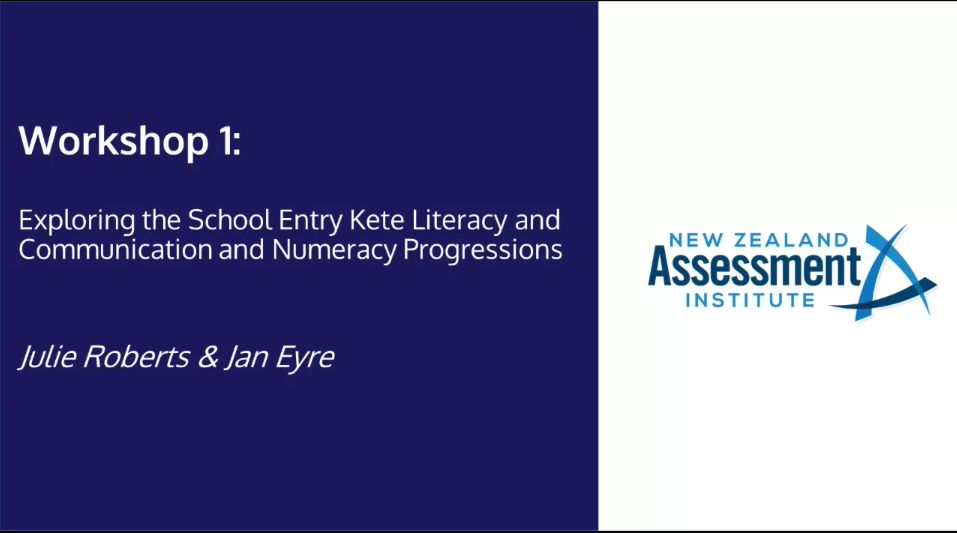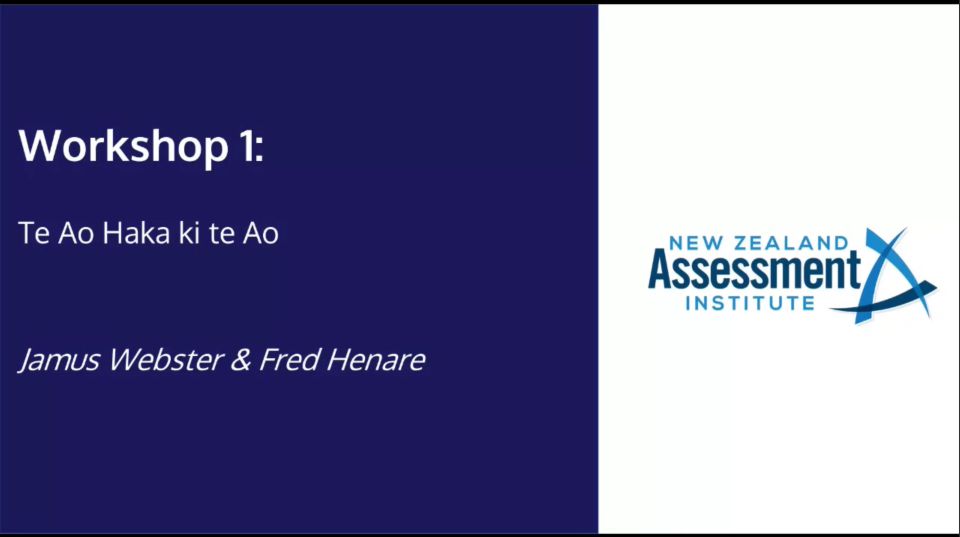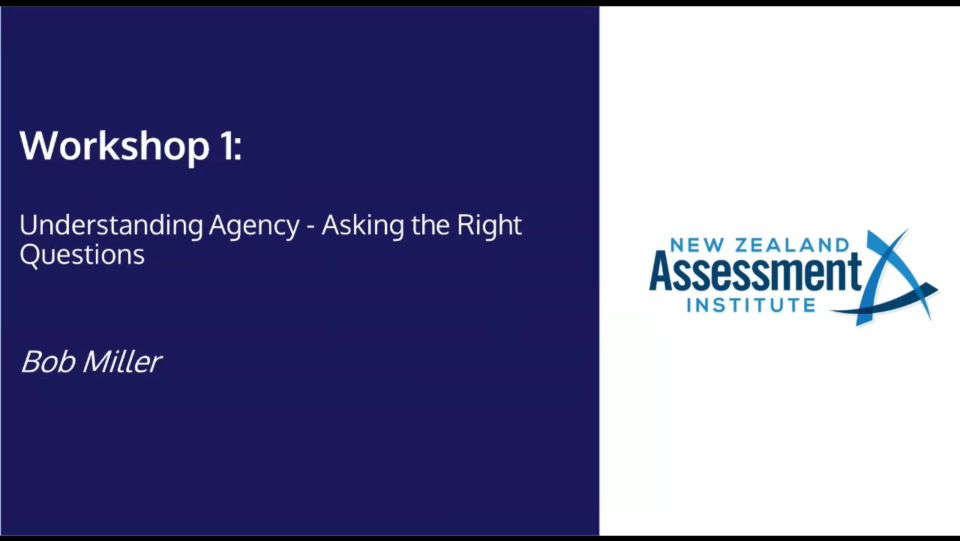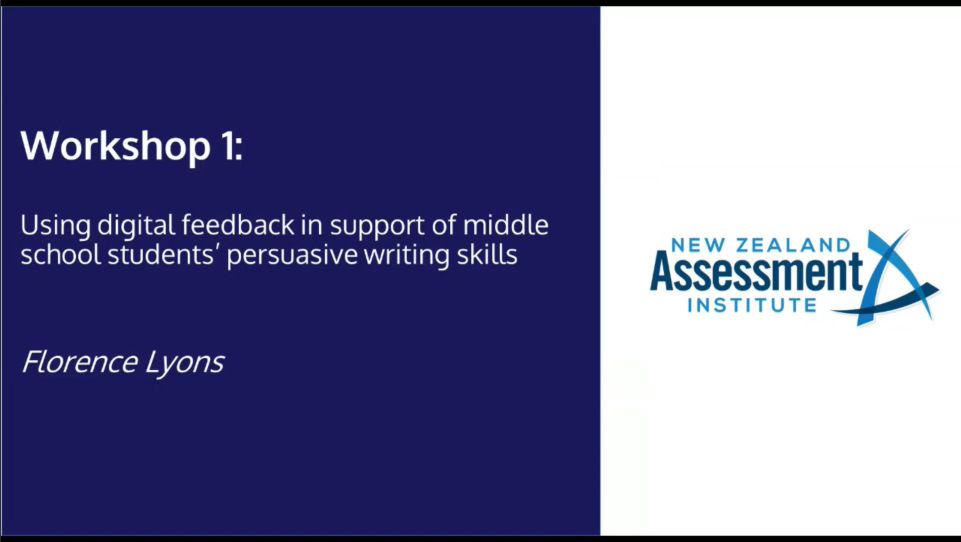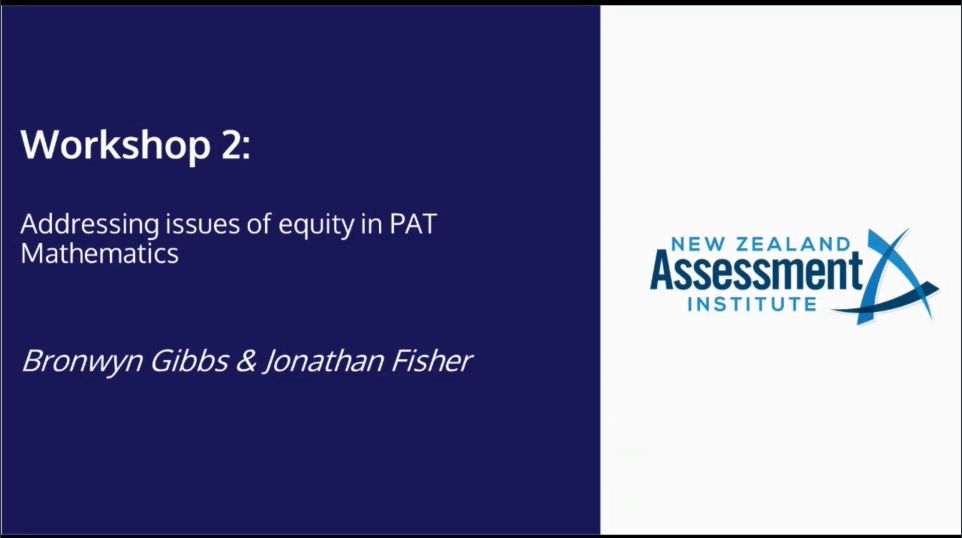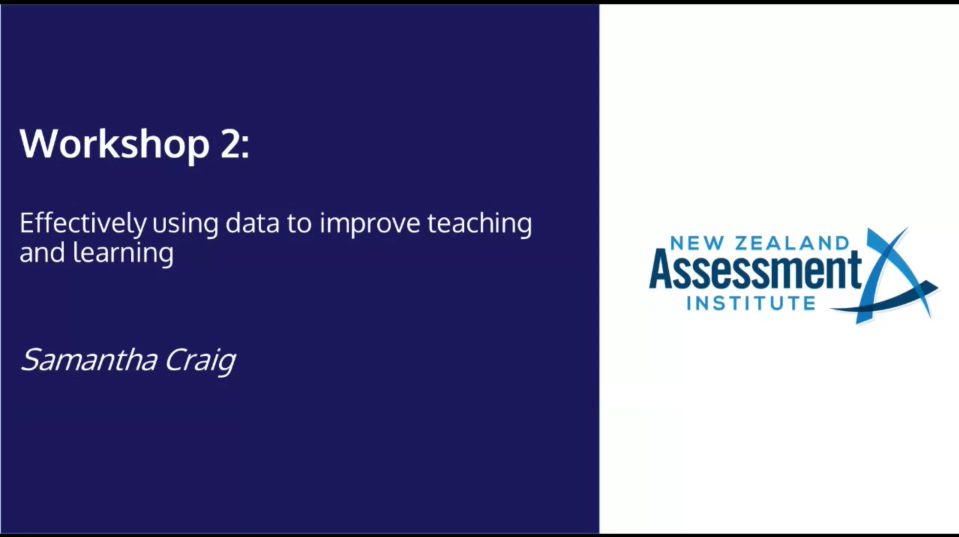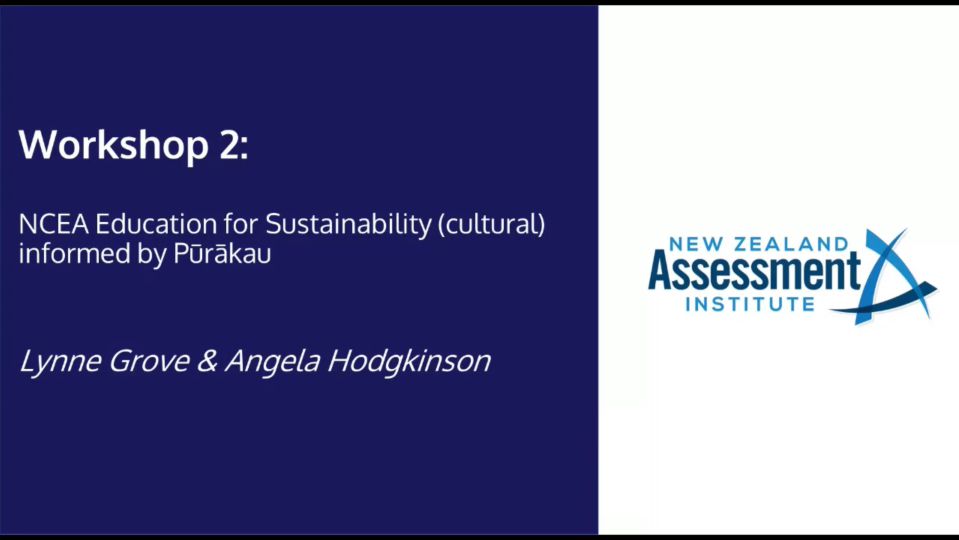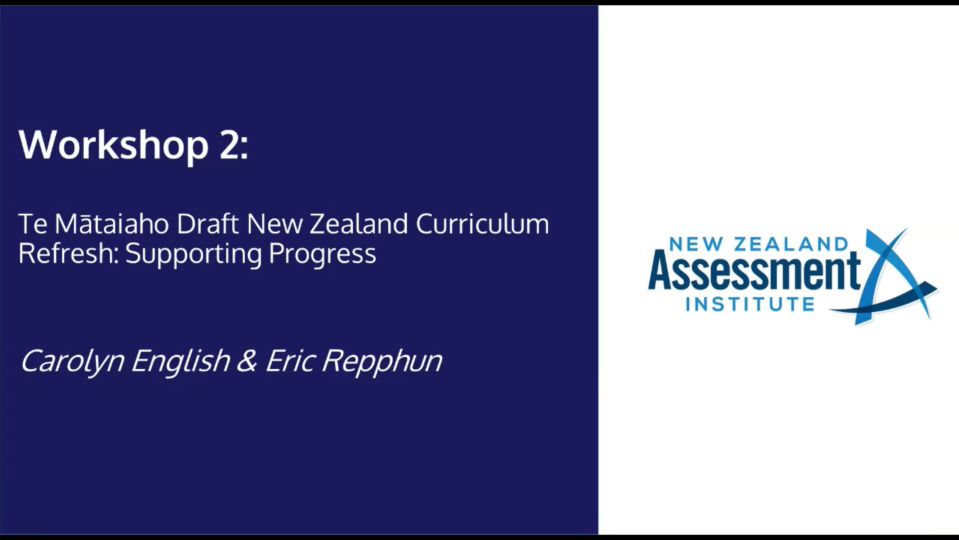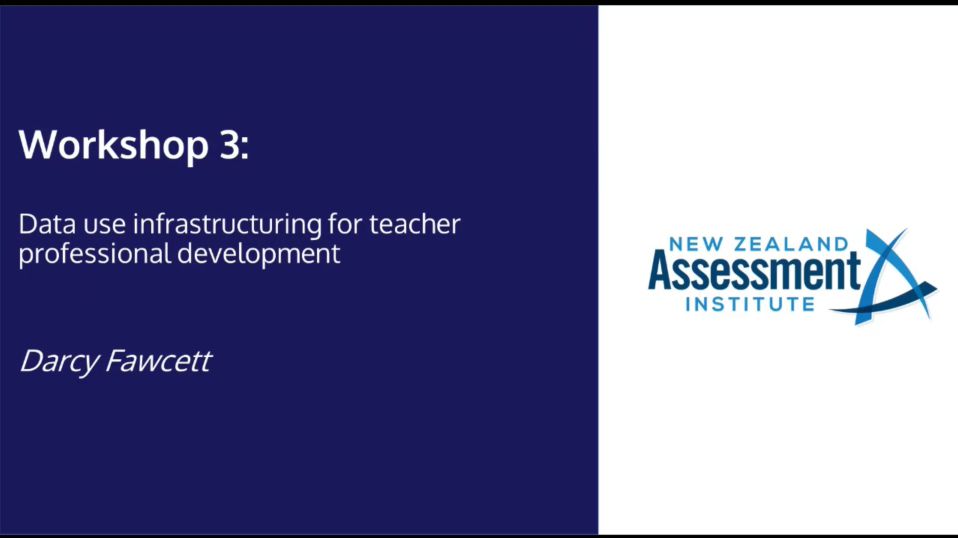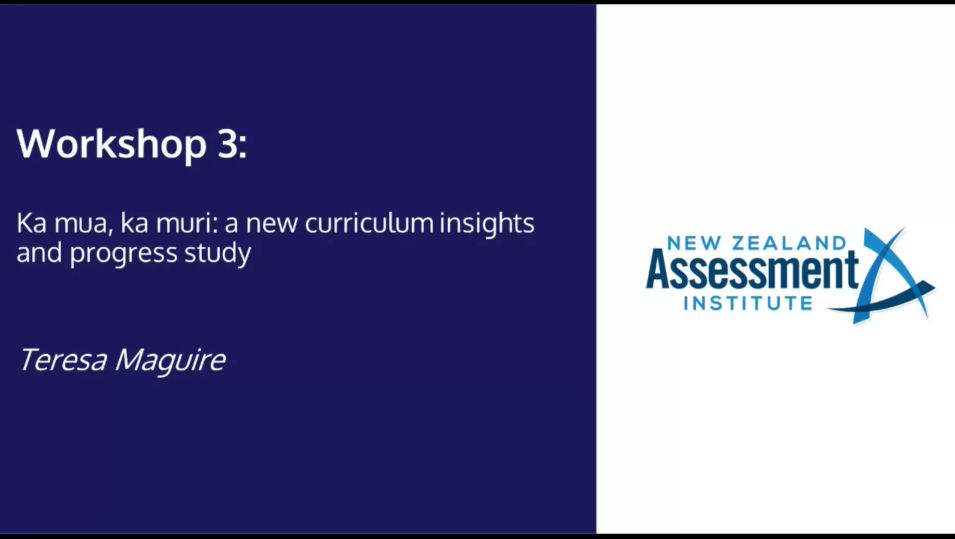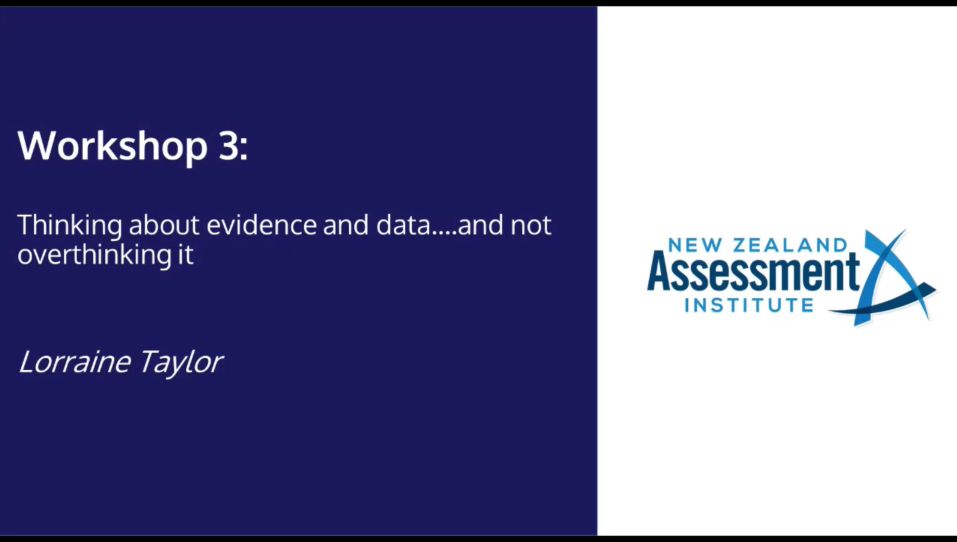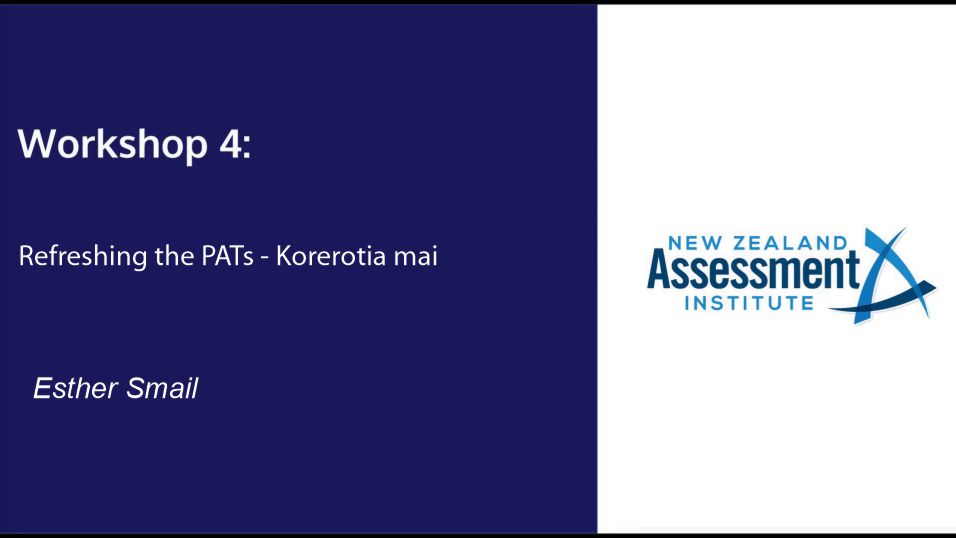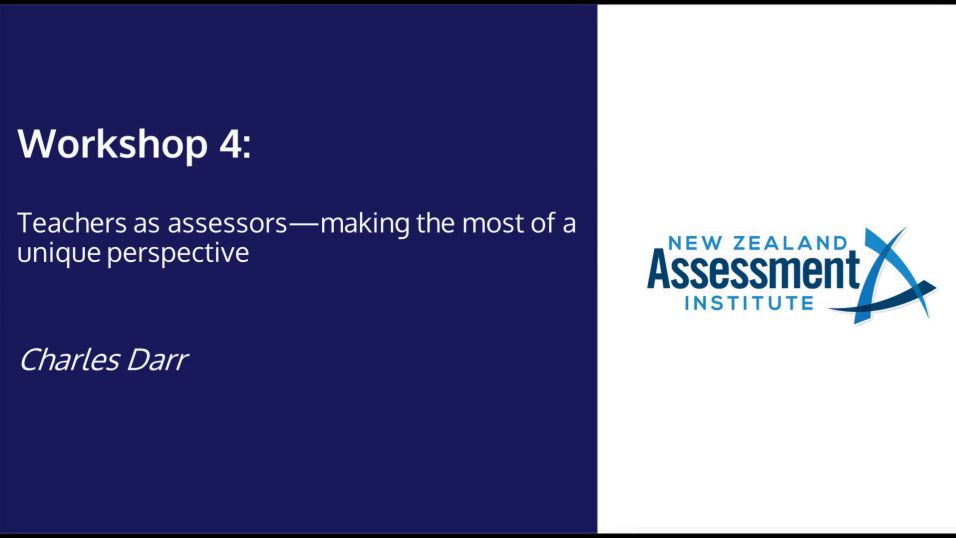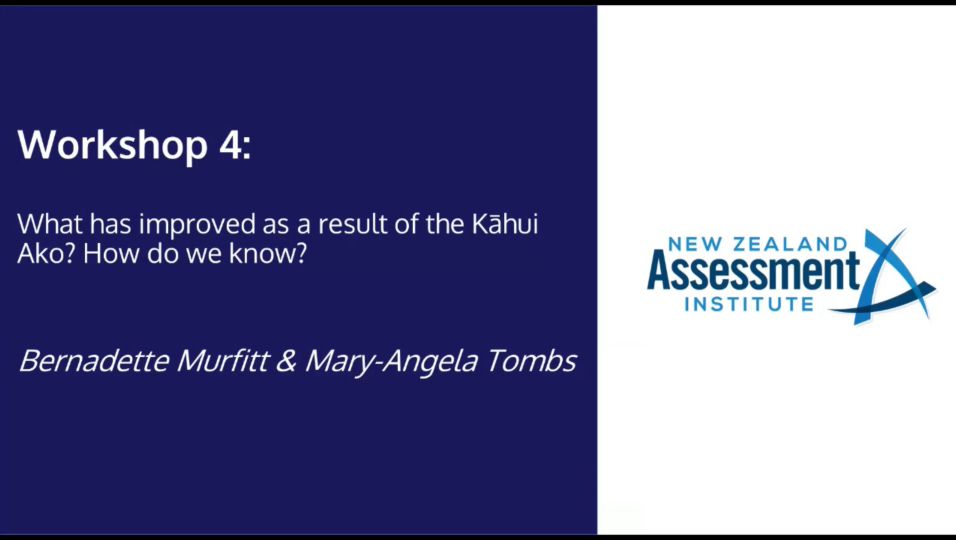National Conference Presentations 2023
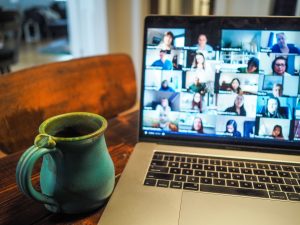 We’re delighted to open up to the public the video presentations from the online part of our conference in April 2023. You can find presentations on a range of assessment topics, from a range of educators, all of whom have interesting and thought-provoking ideas on educational assessment.
We’re delighted to open up to the public the video presentations from the online part of our conference in April 2023. You can find presentations on a range of assessment topics, from a range of educators, all of whom have interesting and thought-provoking ideas on educational assessment.
All but one of the presentations from the 2023 online conference day can be found here, organised in the same order as they appeared on the day of the virtual conference. To help you in deciding which presentations to watch first, we have provided category tags. You can filter by tag through the ‘Category’ drop down menu in the top left hand corner. We encourage you to dive in!
To refresh the table back to its original order click here
| Webinar Title | Webinar Summary | Category |
|---|---|---|
| Associate Professor Jenny Poskitt, NZAI President, is passionate about using assessment for learning with students, teachers, senior leaders, and whānau. Dr Beverley Booth is Principal of Devonport Primary. She has recently been awarded her PhD in assessment capability. Both presenters believe that central to how we know ākonga are learning is respectful, reciprocal conversations (kōrero). Through this, mutually beneficial relationships (whanaungatanga) develop in which learners, whānau and educators share understanding about what matters, how to learn and what achievement looks and feels like. This keynote seeks to inform and inspire through sharing the journey of national and local school learning. … | assessment for learning, narratives, whanaunatanga, years 1-13 | |
| Jan Coleman is an Evaluation Partner with the Education Review Office, working out of Pōneke Wellington. In this presentation she explains ERO’s new methodology for reviewing schools, which has been underway for the last two years. Their new approach is collaborative rather than judgmental, in which each school has a dedicated reviewer called an Evaluation Partner who works alongside schools working towards improvement. Their evaluation focus is on what the school needs to do for improvement. Jan also discusses common issues being experienced in schools. | ERO, evaluative capability, improvement, review | |
| Julie Roberts and Jan Eyre are researchers with NZCER currently working on the Ministry’s School Entry Kete. Julie is developing the new Numeracy Framework and Jan the Literacy and Communication Framework. In this workshop they share literacy and communication, and numeracy progressions and supporting resources being developed as part of the school entry kete (SEK) that will support kaiako to notice, recognise and respond to mokopuna understandings and skills on entry to school. NB: The draft trial School Entry Kete booklets are no longer available. The development of the work has been completed and shared with the Ministry. | progressions, school entry kete (SEK), years 1 & 2 | |
| Jamus Webster’s tribal affiliations are Te Arawa, Ngāpuhi, Tūhoe and Te Whānau ā-Apanui. He’s a Te Ao Haka teacher at Raukura: Rotorua Boys’ High School, well-known nationally and internationally through his knowledge and expertise in TAH. In this presentation, Jamus showcases Te Ao Haka as a culturally responsive art form, providing opportunities for all ākonga to engage in Māori culture, language, and traditional practice. He explains how the recent inclusion of TAH in the Achievement Standard network at levels 1, 2 and 3 and innovative methods of assessment are inspiring ākonga to engage in learning across the curriculum. | cultural responsiveness, engagement, NCEA, Te Ao Haka, years 1-13 | |
| Bob Miller is an Associate Principal at Stonefields School, an Across School Lead for the Te Rōpū Pourewa kāhui ako, and a facilitator and data analysist for Te Kete Hono. Over five years, Bob has worked with Te Rōpū Pourewa kāhui ako to gather thousands of responses to their ‘Agency Self-Perception’ survey, to compare levels of self-efficacy across different demographics and abilities. This incredible data set gives valuable insights into how achievement, engagement, self-belief and character traits are interconnected. Bob explains how to ask the right questions of an organisation, of learners, and of data to build a collaborative inquiry … | agency, data collection and analysis, research, years 4-10 | |
| Providing effective feedback is one of the most important changes a teacher can implement to enhance learning. However, it doesn’t always happen. In this presentation Florence Lyons discusses her 2018 research that combined feedback and digital technology to create a different learning environment for teachers and students to collaborate on persuasive writing. Florence is a language teacher with a sustained interest in the role of digital technology in supporting the students who need it the most. After completing a master’s degree, she decided to explore further the potential of digital technology in providing feedback. She became interested in understanding why … | digital technology, feedback, research, years 7-13 | |
| Jonathan Fisher and Bronwyn Gibbs are both kairangahau/researchers at NZCER. Jonathan specialises in curriculum and assessment, resource development, ICT and mathematics education, and Bronwyn in mathematics education and assessment. In 2022 NZCER embarked on an equity refresh of the PAT Mathematics assessments with the intention of providing a lever for equity through more culturally relevant, authentic, and accessible assessments. In this workshop Jonathan and Bronwyn share some of their new items, as well as their experiences from this complex journey of change. | mathematics, Progressive Achievement Tests, refresh, years 4-10 | |
| Samantha Craig is a facilitator for SchoolTalk, an app developed to weave together key elements of teaching, learning and assessment. She represents Te Kete Hono team and explains how the SchoolTalk app enables learner agency, supports teacher efficiency and effectiveness and aids parent engagement. The app communicates in ‘real time’ how a child is achieving and progressing. Samantha describes how a growing network of schools are using SchoolTalk to identify impacts they are having and to create clear next steps for improvement. How powerful would it be if schools were able to see in real time how they are improving … | assessment and reporting, real time information, School Talk, years 1-13 | |
| Lynne Grove is an English, social studies and education for sustainability teacher at Aparima College in Riverton. Aparima College is a year 7 – 13 school in the deep south of the South Island with around 200 students. Lynne shares strategies for facilitating assessment of the 91735 Education for sustainability achievement standard. She describes their whole school focus to promote localised curriculum and mātauranga Māori, and how this supported student engagement, cross curricular collaboration (visual Art, technology) and community input (kaumatua and the local kindergarten). Level 2 NCEA assessment evidence from one of her students is shared to demonstrate positive … | local curriculum, mātauranga Māori, NCEA, sustainability, years 9-13 | |
| Carolyn English is a Chief Advisor in the MoE Te Poutāhū curriculum refresh team. Eric Repphun (PhD) is working in the refresh team, currently contributing to the development of the refreshed Maths & Statistics and Technology learning areas. In the workshop Carolyn and Eric provide a brief update on the draft refreshed NZC Te Mātaiaho, timeline and implementation process, introduce the Te Mātaiaho progression model and explore its focus on culturally sustaining teaching and assessment. The draft NZC refresh Te Mātaiaho is available now for people to provide feedback via a national survey. Get involved | Curriculum Refresh (education.govt.nz) | curriculum refresh, NZC Te Mātaiaho, years 1-13 | |
| Vivienne Mallabar is a founding Assistant Leader of Learning at Ormiston Junior College, opened in 2017 in Flatbush in Auckland. In this presentation she explains the transdisciplinary approach to learning across the school, based on student agency and student self efficacy. Student progress is based on narrative assessment and evidenced through digital badging that shows learners’ achievement and competencies at levels 4 and 5 of the curriculum. In this presentation Vivienne explains how the school is now using the principles, practices and proofs in the NZAI Assessment PPP publications to test the robustness of their approach. 1115 – … | assessment for learning, Assessment PPP, digital badges, narrative assessment, years 1-13 | |
| Earlier in 2022, NZCER completed a survey of secondary teachers’ perspectives on assessment for learning (AfL). A total of 1,093 teachers responded to the survey giving a nationally representative picture in terms of school decile. In this workshop, Mohamed Alansari explores these perspective and the extent to which secondary teachers engage in AfL practices . The workshop highlights points of interest for those interested in conditions for stronger engagement with AfL practices. Mohamed Alansari is a senior researcher with NZCER. His research spans educational and social psychology, with a specific focus on institutional and classroom practices that impact student learning. … | assessment for learning, survey, years 9-13 | |
| Darcy Fawcett has recently founded Sound Data, where he seeks to increase teacher impact through the power of data. He continues to dedicate his career and PhD research to supporting teachers to develop their practice and hence improve outcomes for all students. The subject of his presentation – data use infrastructuring – endeavours to develop: the data literacy teachers and leaders require to ‘see, collect and interpret’ data relevant to teaching; the expertise, structures and resourcing to collect, access, analyse and implement data-based knowledge; and an improvement-focused data-culture where teachers and leaders have agency in their data use. | data collection and analysis, evaluative capability, years 1-13 | |
| Teresa Maguire is a senior resource developer and researcher at NZCER. She is the project co-ordinator for the new curriculum insights and progress study, building on the National Monitoring Study of Student Achievement (NMSSA). It will be an important part of our uniquely Aotearoa NZ system for understanding how learners are progressing and achieving across English-medium primary schooling in relation to the refreshed New Zealand Curriculum (NZC). In this presentation Teresa shares the new approaches being taken to provide a picture of the progress of ākonga at Years 3, 6 and 8. | national testing, NMSSA, years 3 & 6 & 8 | |
| Lorraine Taylor has been teaching and leading in schools for 34 years. She has been principal in four schools across NZ, a Kāhui Ako leader and is currently Principal of Silverstream School in Upper Hutt and the director of Leadership Dynamics. This workshop asks how we can navigate ‘assessment’ as a central process in education which gives value to all stakeholders (whānau, students, teachers, principal). It distills research in assessment and reporting over the last 20 years into some practical applications for schools. Assessment is the bridge between teaching and learning. (Dylan Wiliam) | assessment and reporting, evaluative capability, years 1-8 | |
| Esther Smaill is a kairangahau matua|senior researcher at NZCER. During this workshop she invites participants to add their voices to the chorus to inform the development of new equity-focused support materials for the recently refreshed Progressive Achievement Tests (PATs). Undertaken by the New Zealand Council for Educational Research (NZCER), the PAT refresh is intended to support learning and teaching approaches that lead to equitable outcomes for learners who have traditionally been underserved by our education system, including ākonga Māori and Pacific learners. E koekoe te tūī, e ketekete te kākā, e kūkū te kererū. The tūī chatters, the parrot gabbles, the wood pigeon coos. | Progressive Achievement Tests, refresh, years 3-10 | |
| Charles Darr is a researcher at the New Zealand Council for Education. He is involved in a range of assessment development work, and has played a conceptual leadership role in the National Monitoring Study of Student Achievement (NMSSA). Charles often writes about assessment issues and contributes to national advisory groups focused on assessment. This presentation explores the potential of teacher decision making in assessment spaces. It looks at the opportunities available to teachers and the challenges they can face. It also explores some scaffolds and supports designed to make the most of teacher-led assessment in a learning and teaching context. … | teacher-led assessment, years 1-13 | |
| Mary-Angela Tombs, principal of St Francis de Sales School and Bernadette Murfitt, principal of Sacred Heart Cathedral School, are co-leaders of the Wellington Catholic Schools’ Kāhui Ako. Their presentation addresses two vital questions that they ask themselves at each meeting of the leadership team: What has improved as a result of the Kāhui Ako? How do we know? After more than four years as co-leaders of a diverse community of learners across the capital city, they have some stories to share about navigating choppy seas – and guiding their schools towards a shared vision – and what a huge challenge … | evaluative capability, kāhui ako, years 1-13 | |
| Dr Nina Hood is the founder of The Education Hub, a not-for-profit with a mission to bridge the gap between research and practice in education. Her keynote presentation explores what assessment might be – its purpose, its forms, and its implementation and uses – in a systemically sound, rigorous, and relevant education system. It will draw on what we know about the principles of effective assessment and examine how these might look and be enacted in an education system where dominant paradigms and the current grammar of schooling are challenged. | keynote, policy, system evaluation |



